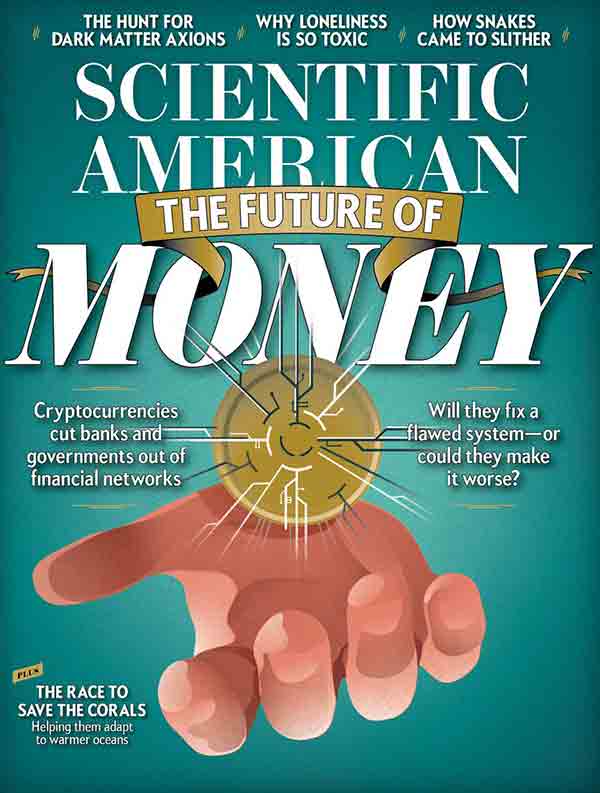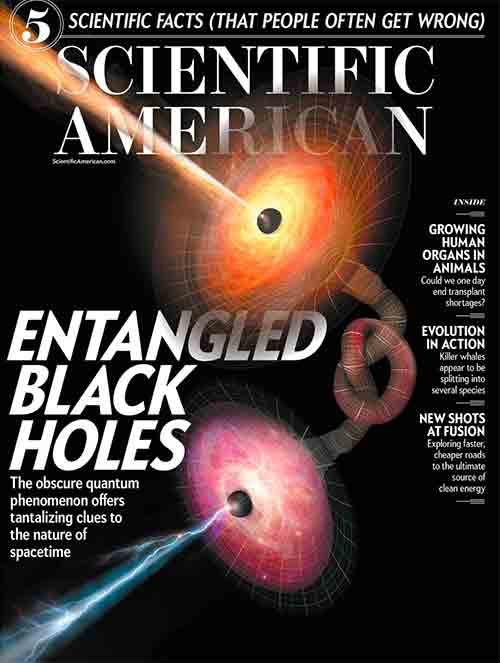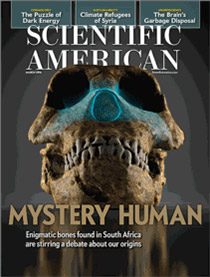Combating science denial with science pleasure
That conservatives doubt scientific findings and theories that conflict with their political and religious beliefs is evident from even a cursory scan of right-leaning media. The denial of evolution and of global warming and the pushback against stem cell research are the most egregious examples in recent decades. It is not surprising, because we expect those on the right to let their politics trump science—tantamount to a dog-bites-man story.
That liberals are just as guilty of antiscience bias comports more with accounts of humans chomping canines, and yet those on the left are just as skeptical of well-established science when findings clash with their political ideologies, such as with GMOs, nuclear power, genetic engineering and evolutionary psychology—skepticism of the last I call “cognitive creationism” for its endorsement of a blank-slate model of the mind in which natural selection operated on humans only from the neck down.
In reality, antiscience attitudes are formed in very narrow cognitive windows—those in which science appears to oppose certain political or religious views. Most people embrace most of science most of the time.
Who is skeptical of science, then, and when?
That question was the title of an October 2017 talk I attended by Asheley R. Landrum, a psychologist at Texas Tech University, who studies factors influencing the public understanding and perception of science, health and emerging technologies. She began by citing surveys that found more than 90 percent of both Republicans and Democrats agreed that “science and technology give more opportunities” and that “science makes our lives better.” She also reviewed modest evidence in support of the “knowledge deficit hypothesis,” which posits that public skepticism of science is the result of inadequate scientific knowledge. Those who know more about climate science, for example, are slightly more likely to accept that global warming is real and caused by humans than those who know less on the subject. (continue reading…)
read or write comments (11)
The psychology of political pessimism
“If you had to choose a moment in time to be born, any time in human history, and you didn’t know ahead of time what nationality you were or what gender or what your economic status might be,” what time would you choose? Paleolithic? Neolithic? Ancient Greece or Rome? Medieval times? Elizabethan England? Colonial America? The 1950s? “You’d choose today,” answered the man who posed this question in an April 2016 speech, President Barack Obama. “We are fortunate to be living in the most peaceful, most prosperous, most progressive era in human history,” he opined, adding “that it’s been decades since the last war between major powers. More people live in democracies. We’re wealthier and healthier and better educated, with a global economy that has lifted up more than a billion people from extreme poverty.”
If these facts are true—and they are (see, for example, economist Max Roser’s ourworldindata.org and the data at human progress.org aggregated from the World Bank, the United Nations, the Organization for Economic Co‑operation and Development, and Eurostat)—then why the doom and gloom heaped on us by politicians and pundits on both sides of the political aisle? First, news media outlets are far more likely to report bad news than good, simply because that is what they have been tasked to do. Another day in Turkey without a coup goes unreported, but just try and take over a country without the world’s media covering it. Second, as psychologist Roy F. Baumeister explained it in the title of a now classic 2001 paper he co-authored in the journal Review of General Psychology, “Bad Is Stronger Than Good.” Reviewing a wide range of evidence across many domains of life, the authors found that “bad emotions, bad parents, and bad feedback have more impact than good ones, and bad information is processed more thoroughly than good. Bad impressions and bad stereotypes are quicker to form and more resistant to disconfirmation than good ones.” Why? (continue reading…)
read or write comments (3)
Political Bias in the Academy
In the past couple of years imbroglios erupted on college campuses across the U.S. over trigger warnings (for example, alerting students to scenes of abuse and violence in The Great Gatsby before assigning it), microaggressions (saying “I believe the most qualified person should get the job”), cultural appropriation (a white woman wearing her hair in cornrows), speaker disinvitations (Brandeis University canceling plans to award Ayaan Hirsi Ali an honorary degree because of her criticism of Islam’s treatment of women), safe spaces (such as rooms where students can go after a talk that upset them), and social justice advocates competing to signal their moral outrage over such issues as Halloween costumes (for example, at Yale University). Why such unrest in the most liberal institutions in the country?
Although there are many proximate causes, there is but one ultimate cause—lack of political diversity to provide checks on protests going too far. A 2014 study conducted by the University of California, Los Angeles, Higher Education Research Institute found that 59.8 percent of all undergraduate faculty nationwide identify as far left or liberal, compared with only 12.8 percent as far right or conservative. The asymmetry is much worse in the social sciences. A 2015 study by psychologist José Duarte, then at Arizona State University, and his colleagues in Behavioral and Brain Sciences, entitled “Political Diversity Will Improve Social Psychological Science,” found that 58 to 66 percent of social scientists are liberal and only 5 to 8 percent conservative and that there are eight Democrats for every Republican. And the problem is most relavent to the study of areas “related to the political concerns of the Left— areas such as race, gender, stereotyping, environmentalism, power, and inequality.” The very things these students are protesting. (continue reading…)
read or write comments (36)




